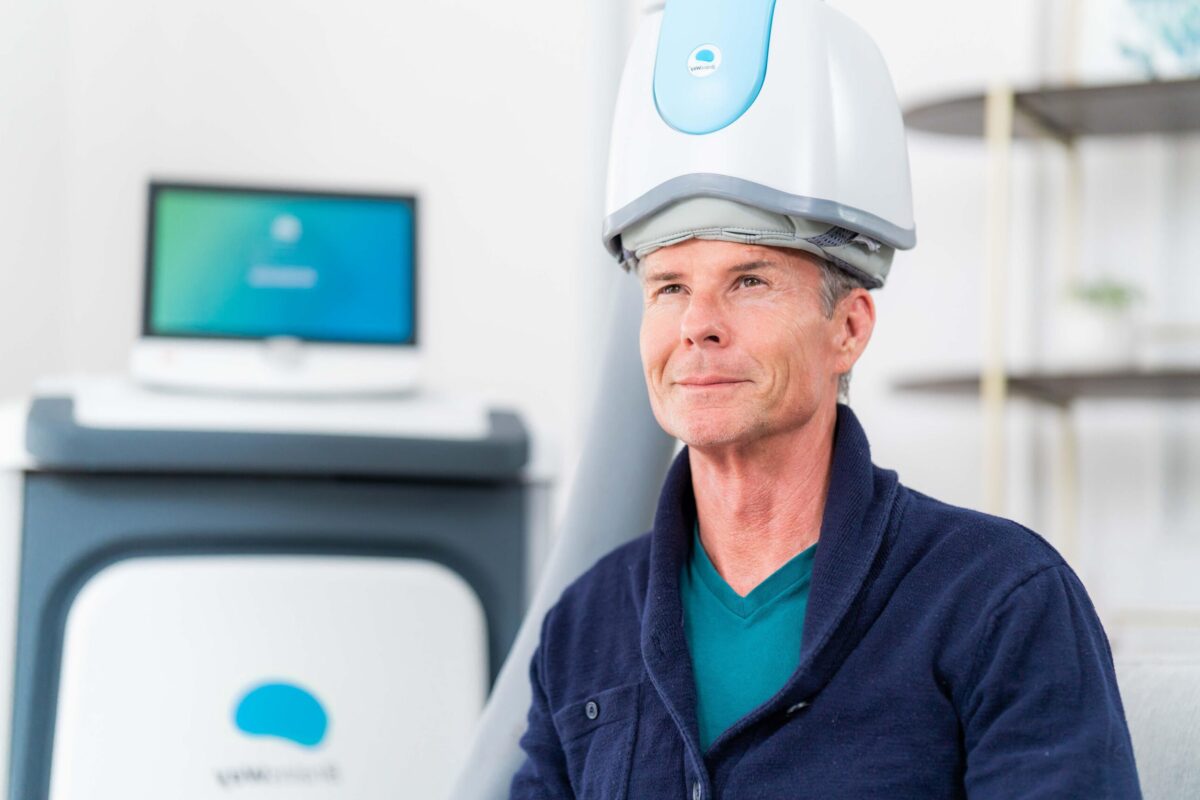Dementia presents one of the most significant challenges in modern healthcare. As it progresses, it impacts cognition, memory, and behavior, leaving patients and their families searching for effective treatments. While traditional therapies aim to manage symptoms, new approaches are emerging that promise to improve quality of life. Repetitive Transcranial Magnetic Stimulation (rTMS) is one such innovation. This non-invasive treatment offers a unique pathway to address cognitive decline by directly targeting brain activity.
At the forefront of this development, Axon Integrative Health integrates repetitive TMS into comprehensive care plans designed for individuals with dementia. By utilizing this advanced technology, they strive to enhance brain function and provide new opportunities for managing this complex condition.
How Repetitive TMS Engages the Brain
The underlying mechanisms of dementia often involve the deterioration of neural pathways essential for cognition, memory, and behavior. Repetitive TMS works by delivering focused magnetic pulses to specific areas of the brain, activating underperforming neurons and encouraging the formation of new neural connections.
One of the primary targets for repetitive TMS is the prefrontal cortex, which governs executive functions like decision-making, memory retention, and problem-solving. By stimulating this area, TMS fosters improved communication between neurons, potentially restoring some of the functions lost to dementia.
Beyond the prefrontal cortex, repetitive TMS may also impact regions responsible for mood and emotional regulation. This aspect is particularly valuable for individuals with dementia, as emotional symptoms like anxiety, depression, and agitation often accompany cognitive decline. TMS offers a drug-free way to help stabilize mood and improve overall mental well-being.
The Growing Body of Evidence
Scientific studies investigating repetitive TMS for dementia are still in their early stages but have shown promising results. Research indicates that TMS can enhance cognitive functions like attention and memory while reducing behavioral symptoms. For example, a study focusing on individuals with Alzheimer’s disease revealed that participants who received repetitive TMS showed measurable improvements in memory recall and problem-solving skills compared to those who did not.
In another study, repetitive TMS was combined with cognitive training exercises. The results demonstrated a synergistic effect, with participants achieving better outcomes than with cognitive exercises alone. These findings suggest that TMS not only holds standalone potential but also complements other therapies aimed at managing dementia.
Why Choose Repetitive TMS?
The appeal of repetitive TMS lies in its precision and minimal invasiveness. Unlike medications, which can have widespread side effects, TMS directly targets specific brain regions without impacting the rest of the body. This makes it an attractive option for individuals who are unable to tolerate traditional treatments or are seeking additional ways to address their symptoms.
Moreover, repetitive TMS is a non-invasive procedure that requires no anesthesia or recovery time. Patients can engage in their usual daily activities immediately following a session, making it a convenient option for individuals managing complex care routines.
What to Expect During Treatment
The process of receiving repetitive TMS is simple and patient-friendly. At Axon Integrative Health, treatment begins with an initial consultation to assess the individual’s symptoms and determine whether TMS is the right fit.
Once the treatment plan is established, sessions are scheduled several times a week over a series of weeks. During each session, the patient sits comfortably while a magnetic coil is positioned near the scalp. The coil delivers gentle pulses to the targeted areas of the brain, stimulating activity and promoting neural growth.
Patients often describe the sensation as light tapping on the scalp, with little to no discomfort. Each session lasts between 30 and 60 minutes, and there is no downtime, allowing patients to return to their normal routines immediately afterward.
Integrating TMS into Dementia Care
Repetitive TMS is most effective when incorporated into a comprehensive treatment plan. At Axon Integrative Health, the therapy is paired with other evidence-based interventions to address the full spectrum of dementia’s challenges.
By combining TMS with cognitive training, physical activity, and nutritional support, the clinic aims to maximize each patient’s potential for improvement. This integrated approach ensures that the benefits of TMS extend beyond individual sessions, creating a foundation for long-term success.
The Role of TMS in Emotional Well-Being
One of the often-overlooked aspects of dementia is its impact on emotional health. Many individuals experience anxiety, depression, or irritability, which can exacerbate the challenges of cognitive decline. Repetitive TMS offers a way to address these emotional symptoms by targeting brain areas involved in mood regulation.
Through its effects on neural pathways, TMS can help stabilize mood and improve resilience to stress. This dual impact on cognitive and emotional health makes TMS a valuable addition to dementia care, providing relief for both patients and their caregivers.
Taking the Next Step
While dementia remains a complex and evolving condition, treatments like repetitive TMS offer new possibilities for managing symptoms and improving quality of life. By directly engaging the brain’s capacity for change, TMS provides hope for individuals seeking alternatives to traditional therapies.
At Axon Integrative Health, the team is committed to advancing care through innovative approaches like repetitive TMS. Their expertise in tailoring treatment plans ensures that every individual receives the support they need to achieve meaningful improvements.To learn more about how repetitive TMS can help with dementia, visit Axon Integrative Health’s TMS page or contact them directly through their contact page. Exploring new options could be the first step toward a brighter future.





